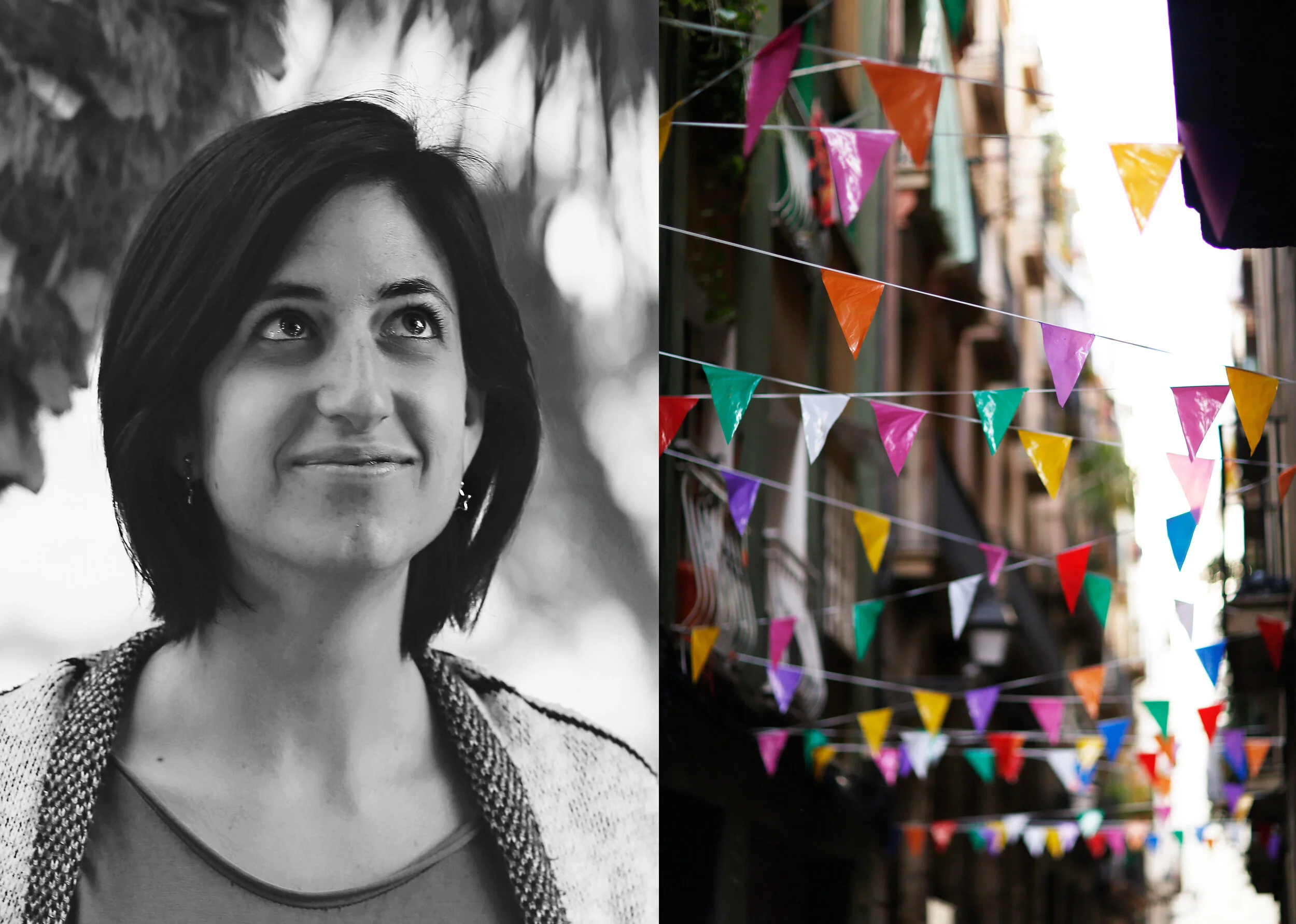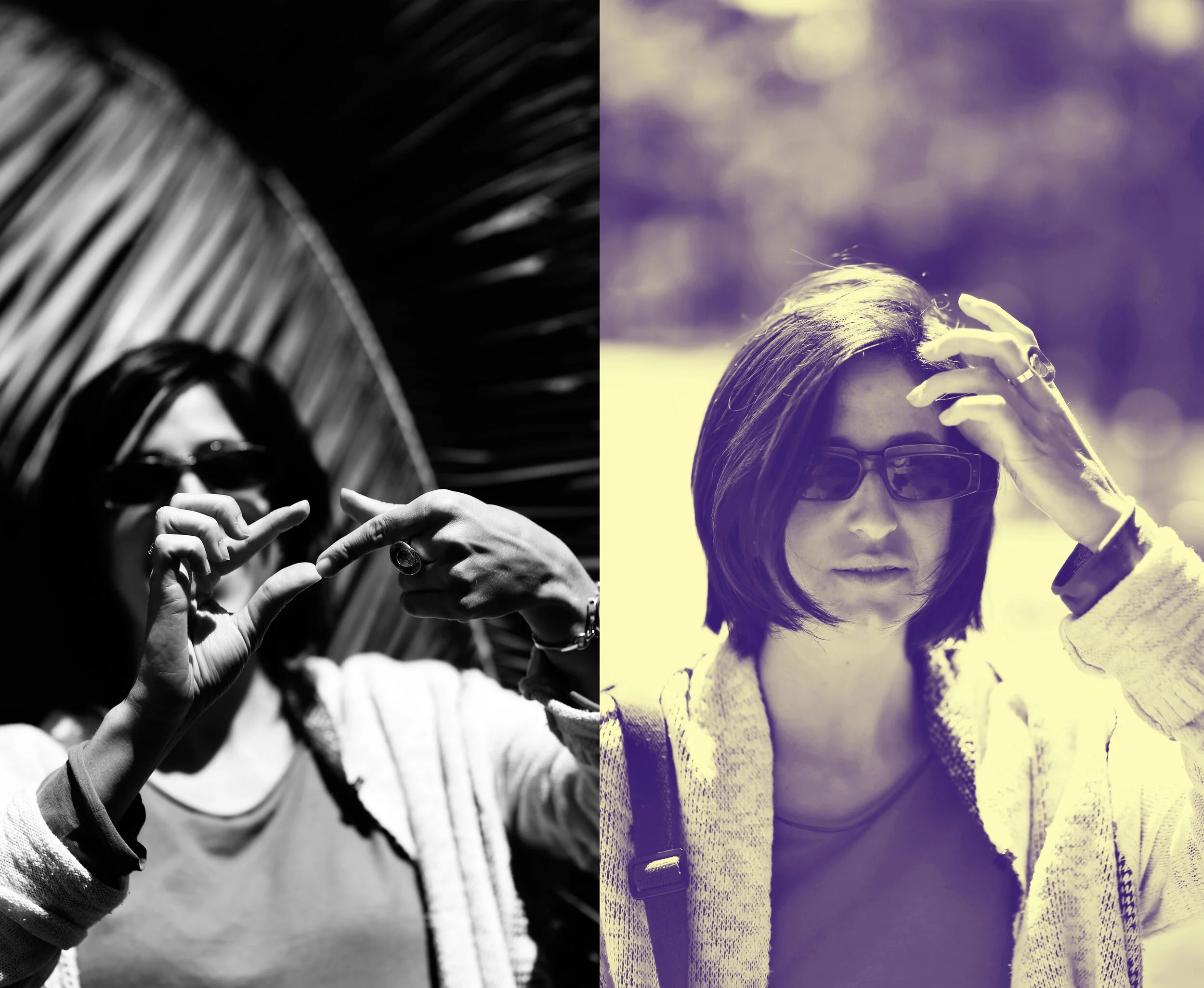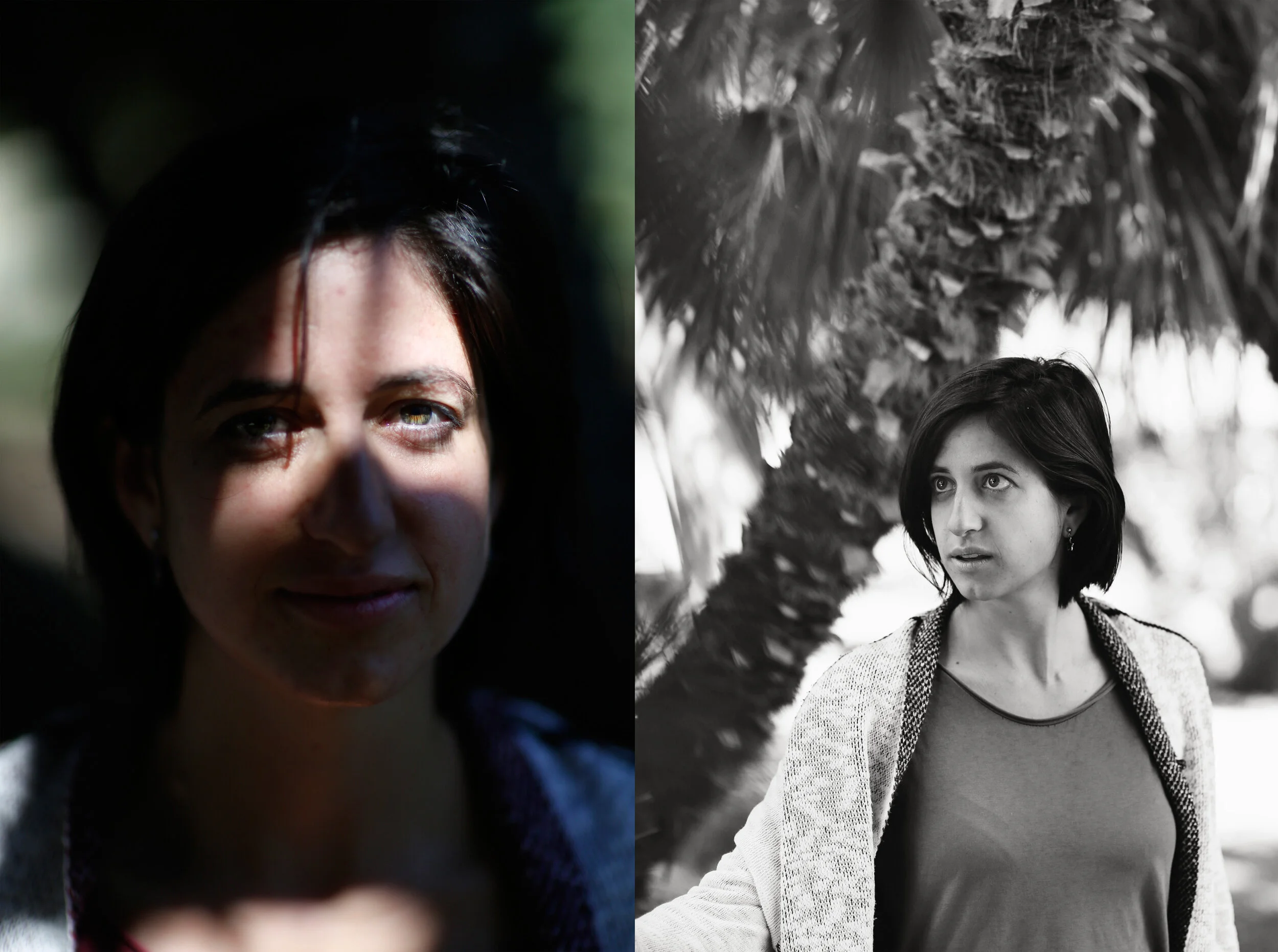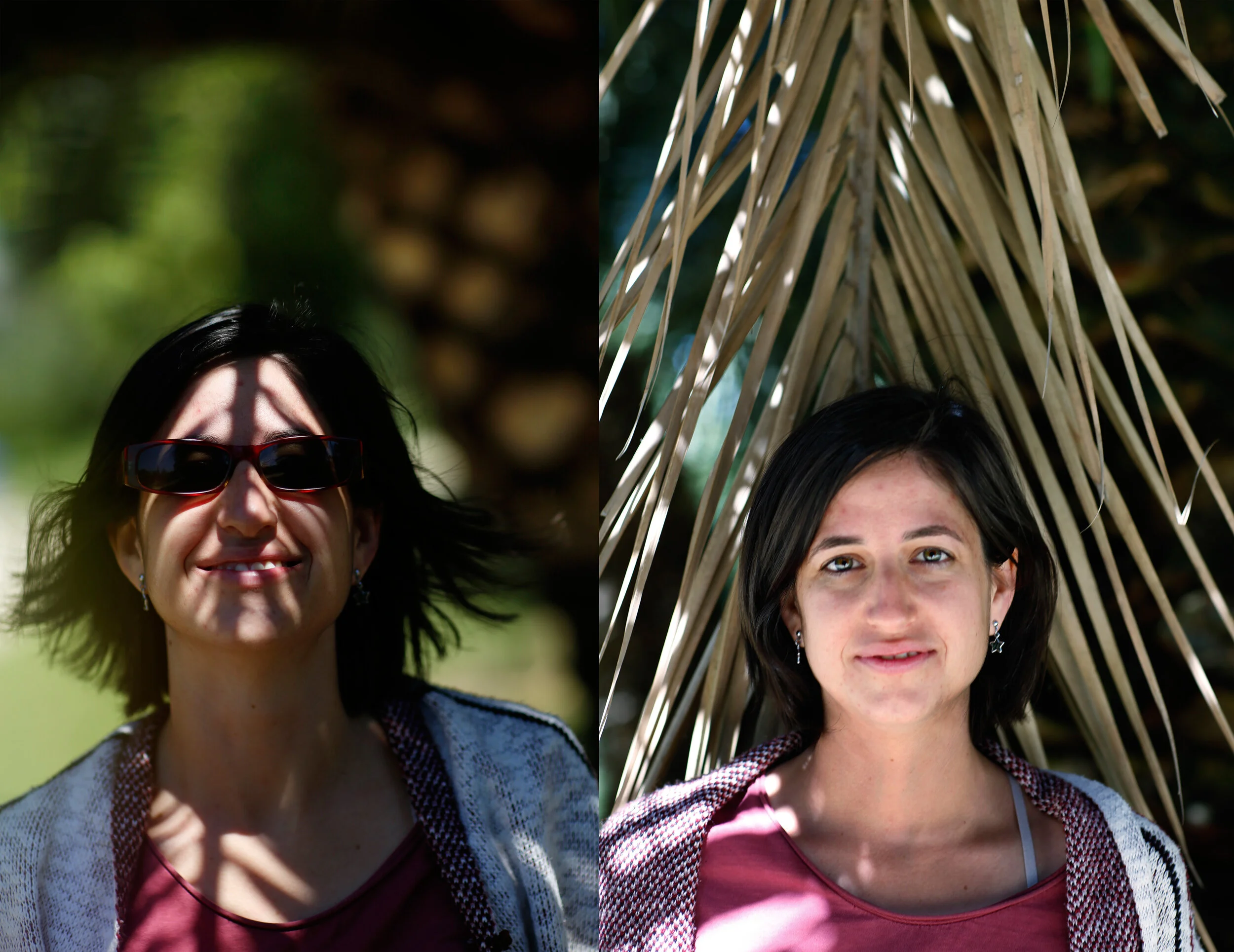Teacher, Early Education, Primary School, Education Consultant, Barcelona, Spain
People like Ms. Gisela Salarich change the world. They are the ones who care, almost to the point of obsession, about an idea, challenge, task. For this proud Catalonian, the betterment of Spanish elementary and middle school systems is the challenge worth undertaking. Ms. Salarich continues to question the status quo and spends countless hours researching, reading, collecting, discussing and expanding her field of expertise. Gisela’s dream is to afford kids a school life free of stressors and full of compassionate listening and creative learning plans. Her worst nightmare is witnessing kids grow up into generations of working adults burning out in meaningless mismatched careers, slowly sinking into a middle-aged depression. Gisela’s goals are noble, dedication admirable. At WOW Woman we feel that women like Ms. Salarich should be promoted and nurtured and it brings us pleasure to shine a spotlight with this interview. Please enjoy.
1. Name
Gisela Colell Salarich.
2. Where is your hometown?
Sant Esteve de Palautordera, nearby Barcelona, a small beautiful cultural and talented town, surrounded by nature.
3. What is your profession/career/title/self-label/designation? What does your job consist of?
I am an early education and primary school teacher and nowadays I am an external educational consultant.
In Catalonia, where I live, it is very common for teachers to get supplementary training during the school year or attend learning seminars.
When there is a team of teachers in a school who would like a review conducted, to find out what children’s real needs are, or to help them develop a better methodology with a new approach to learning, they ask for an external consultant. That’s me. I visit the school, meet the team, ask questions to get to know them, and from those discussions we work together to apply changes toward what is better for their children’s learning and well-being in the school.
It is a passionate process and it requires a very creative thinking. I cannot apply the same methodology and ideas for each school and if I did it would be boring for me and most importantly it wouldn’t work. Each school has a history that has to be acknowledged, a different context with different families and children, different age groups, varied approaches to learning and different points of view. Diversity is needed and working with all that different perspectives is something I love very much!
4. What did you study in school?
I obtained a degree in education for children 0 – 6 years of age and another degree for teaching 6 to 12 year olds.
5. What was the journey like to get where you are (in life and career-wise)? What are some accomplishments you’re most proud of, and what was the turning point to set you on a current path in life?
I had a happy childhood surrounded by my family, friends and simplicity, I would say. I reckon there was a big impact in my life when after 18 years living in a small town I went for a gap year to a secondary international school in England. At Brockwood Park School I met people from all over the world and was introduced to many different ways thinking.
After that I attended university and studied education which in my opinion was not enough to become a good teacher and to fulfill my expectations. I wanted to investigate more, to know more about different perspectives in education. So I decided to take “a second degree” by myself and I read all the educational books I could find in any library, I visited all the schools they allowed me to, and asked questions to anyone who would talk about education, even if they weren’t directly related to it professionally.
There is this Spanish saying “there is nothing bad from what you cannot take something positive”, and that is what happened to me for four years of boring, nonsense university education. I ended up with an official degree from the university but with something much more important: I created my own idea of education (based on others, of course). I wrote that in a work called: “Sounds and echoes of an educational approach.” It explains the image of a child that I have, the way a child grows, develops, learns, interacts, etc., and how from there, I build up the role of the adult –the teacher- who is with him accompanying him in that process, and what ‘methodologies’ help that child and the teacher to work together from that perspective. So in a way, I touched all the important elements in education that interact with each other and are interdependent from one another.
From my perspective now, years later, I see this work as a simple approach and it is still what guides me nowadays, with the roots based in the same methodology. However, I never stopped taking that “second degree” on my own, I still visit schools, I still talk about education to anyone interested to get to know their ideas, their path to school, I still read a lot and go to many conferences. It is a never-ending learning path, and I am extremely passionate about it.
6. How is your life different from what you pictured at 20?
In the beginning, I had a different plan for myself. When I was 20 I wanted to become an opera singer. Haha, yes! I felt passionate about singing and even though the entire world said I wasn’t good enough (to become an opera singer you have to have more skills than a good voice) I tried hard for a while. I knew I had the luxury to spend a whole year for training hard and I didn’t want to lose it just because people where saying “I would lose a precious time of my life.” After a year, it was clear to me this world was too competitive and in fact, all I wanted was to enjoy singing. I realized that there are many projects around the world where you can do just that without being a professional.
That is why I went straight to my –by then- second passion: education. I think the world benefits more from me being a teacher than a singer. However, I am happy to never be able to wonder “what if…?” because I really did go for it!
I will say that I never planned to be an external education consultant, in fact, I probably didn’t even know that job existed by then. However, since I was 20 or even before, I always kept all the information I could “just in case” one day someone would need it and I could offer it. I still keep all the notes of each conference or class or conversation on education ‘just in case’ somebody needs that information! I am an exhaustive person, I like to at least have a sense of all aspects, all authors, every activity in every matter. How could I recommend you the best book on… body development for instance, if I didn’t read them all? It wouldn’t be fair to you and uniformed of me.
I believe we need to give opportunities to children and young adults to discover what they want to spend their life with! This is respecting one’s will, the universe’s will, and is part of basic human rights. As Francesco Tonucci said, “Happiness is related to the wishes of the person, which is the nature for he or she was born for. It is important that education acknowledges that because it is not worth to drop off what you want to be for what the world asks you to become.”
I didn’t know at 20 nor do I know now in which part of the world I will end up. I have traveled far and lived abroad but now it makes sense to stop for a while and live where I grew up. For me, roots are important on one hand but it is also challenging to live in the same place for a long time. Understanding the area, the people, the culture is important, but one must try not to get stuck and still remain creative in your surroundings.
People who stay at a same place for a while, become wise because there is no escape from problems, relationships, self-image… that is my thinking now. But I might move one day for whatever reason life brings ahead, it is a mystery!
7. Was there a time when life knocked you down or out and how did you get back up on your feet?
Many times. The saddest and most powerful experience in my life happened when my dad lost his battle to cancer less than two years ago. It was difficult and beautiful at the same time. From that experience I learned that life is not white or black, but also IS white and black at the same time. Contradictory situations happen at the same time. My dad was very wise and well-connected with life and the universe. He died so well!, yes, one can die well, beautifully. And when this happens, although I felt depressed shortly after, I realized just how much strength, joy he has given me and how much he taught me. I don’t ever know how to say it as I’m still recovering from this shock. I find that being connected with your inner self and expressing yourself creatively are the best ways to understand death. My sister, for instance, put together a huge project on physics mechanics of grieving and from the strength my dad gives to her, check it out, it is amazing: “Dance of the Cosmos”. Some people write, like my mum, others create dance shows like a friend of mine, to overcome grieving. For me, I am still re-connecting with myself. It is a slow process and you go through many different stages; let’s see what comes next, wait the world to see my creations!
8. Advice for other women?
Who am I to advise anyone? I am still learning from wise people around me who help me out and inspire me with their thoughts and ways of living. I can only share my experiences and this is listening to one’s own will and asking people around me for help.
9. Knowing what we know now in current political climate, can women be "all that we can be" in today's world? What is the way forward, as you see it, for "feminist values"?
It might sound eutopic but I work for human rights, no matter what gender. It is true (and it must be fought against) that women have been - and still are- not respected compared to men; no doubt of it. If you authentically feel the word ‘respect’, it applies to all human beings equally. Currently I find that there is no true equal respect of genders in education nor in health, not even in oneself, or in relationship with the others.
Machismo is everywhere and more or less consciously I have suffered from it. There can however be a path to equality and respect between men and women.
10. Where in the world do you feel “tallest” (i.e. where is your happy place)?
On that little cozy corner of my sitting room, with a carpet and pillows on the floor, where I meditate, where I paint and write, where I invite my friends to come, sit, chat and share a cup of tea.
Creating peaceful spaces –where I live, where I work- is one of my pleasures! I would like to see schools and hospitals lose the ugly spaces, you know the ones I’m talking about: full of disorganized stuff, strong colors, loud noises, impersonal, untidy. The atmosphere of the places where you treat people and take care of them should also reflect that intent.
11. What extra-curricular activities/hobbies are you most proud of? Why?
I love singing, dancing, doing acroyoga and writing. I've been singing since a young age, in choirs or solo and recorded CDs for children. As I mentioned above I also trained to become an opera singer.
Writing is another powerful tool I use to put my thoughts in order, to express myself, to get things off my chest. The act of writing comes very naturally, I enjoy writing handwritten letters as gifts to friends who live abroad, have a baby, birthday, or simply when I just feel like sharing a piece of myself with them.
Acroyoga is another hobby, I enjoy it a lot because it combines the physical component (body and sensory awareness) with breathing and being in constant non verbal communication with your partner. It is great fun!
12. What do you want to be when you grow up? Future goals/challenges?
I am enjoying this professional moment. If one day I get tired, I will seek something else which can be helpful for the world to grow into a better place.
My goal right now (and it is a big challenge) for every school to look into its pupils’ eyes and know what they say, what they need, how they are… and respect that. If only one teacher in the schools I visit understands that, it would be an enormous achievement. Because a light like this has an immense energy and as long as one teacher sees children with these eyes, the universe understands “this also exists”.
I have this idea to conduct my educational training in an inspirational place. A place for adults to reflect, relax, be in peace with themselves while working on their educational or family projects and a place for children to come and play freely, without judgment, without school pressures and still develop and learn. In fact, I had drawn the place and every little detail in my head, hoping that one day there is the opportunity to build it!
13. What fears are you still hoping to overcome?
The fear of illness, loneliness or not acknowledgment. I have to empower myself more as a woman – I am on my way!
14. Anything you'd do differently, if you had another go at life?
To suffer less. “Letting the river flow earlier”. Being more in the present, and not worrying about the future (and later realizing that what you worried about was meaningless and nonsesical in retrospect).
15. What inspires you?
Authentic people, nice things, caring relationships, creativity, Positivity, nature, beautiful words, music, a movement in dancing, a feeling, grieving…
16. What are you hopeful about?
I hope for a world where people use the word respect. I work and strive to achieve respect in growing, in developing, in learning and education. I hope it can happen in every aspect in life: between people in their personal relationships, between parents and children, among neighbors, in politics, with the landscape, with animals, with growing food, etc.
17. What are some ingredients to a good life?
Doing what you like doing. I also put effort into education, to assist every child find their passion. Otherwise we have capable people as politicians, judges, teachers, doctors but not happy people. The goal is to give people space and tools to reach a place of contentment where they enjoy their jobs. As Alexander Neill (founder of the school Summerhill in England) said, “I would rather prefer a happy sweeper than a neurotic intellectualist.”
Finally some of the more obvious ingredients are good breathing, eating, relating to oneself and the others.
18. What is a quality you most love about yourself and why?
It is difficult to say for me now because I am working on my weaknesses. Let’s say, I have a very wide view of situations, globally, and can be very analytical and comprehensive. I like to be exhaustive and be able to offer different opportunities, services, information. It is easy for me to form an opinion about a topic from the information I gather.
I know I can do anything I want in life, I just need to trust myself, breathe and go for it. And I know that anyone can do the same, they just need to trust themselves, breathe and go for it! Education can help form that trust in oneself. Trust, like respect, is something universe gifts us.
19. What advice would you give your 14-year-old self?
I felt strange when I was 14, different than the most of my classmates. I was thoughtful and insightful. I preferred to have conversations with adults, read books, visit places, go for excursions, sing and play cello, meet different people and learn about their opinions. I wasn’t much into going to discotheque, smoking or criticizing the world. I think it was difficult for me to share my inner world with peers (it is still is) who only seemed to care about showing off to the outside world. At the time perhaps I didn’t understand that my way of living was unique and i was still a valued individual. My motto is: “everyone does their own journey.”
Even if at the time it was difficult to see, now I would say to my 14-year-old self: enjoy life and stop worrying, stop suffering. Don’t take secondary education so seriously, it was crap to spent so much energy on academic studying. I wish I knew better and as my dad taught me before his death: life will tell, let it flow! Again, trust…
20. What are you reading now? (what books do you gift most and what are your favorite reads?)
As a book lover, I have a collection of more than 600 children’s books and 300 young adult’s novels. I use them at work, they inspire me and they are a huge part of my life.
I read a lot about education so my table is always full of articles, newspapers, books, magazines on this topic. I like that my already enormous library is constantly growing, with the materials tabulated in an orderly fashion, ready for use.
I used to devour novels back in time but nowadays I am not reading narrative so much. However I always need to read something in order to fall asleep. I am currently reading “Educated. A Memoir” by Tara Westover. It’s a remarkable tale of a girl who overcame all sorts of obstacles (neglect, isolation, miseducation) to achieve success and higher education and live to tell about it.
I also enjoy biographies very much and usually am reading three books at one time. The most recent book I finished is by Jordi Cuixart, It is about a political prisoner in Catalonia. There is a politically tense situation happening right now; it is hard, sad and we are all learning from it. Cuixart’s work inspires me immensely.
21. Who is a WOW Woman in your world who inspires you and why? Can you nominate three (or more) women you know who perfectly fit WOW WOMAN description? What would you tell them, if you had an opportunity, why you admire them?
I am inspired by authentic people no matter what gender. However, when I reflect on women who touched and moved me, I come up with several authentic women who have helped and inspired me. They are teachers, writers, singers, friends… my grandmothers, my mum, Teresa Manén, Montse Deulofeu, Teresa Sogas, Lídia Pujol, Niki Reed, Virginia Wolf, J.K. Rowling, Maria Montessori, Rebeca Wild, and many others.
All these women found their passion in life and followed it further, no matter what. They also fought to find spirituality in a place where this word was never mentioned, fought against the misguided educational system, gave love to their students above all. These WOW Women found the way to express themselves through their voice or created their own character on stage, found a simple – healthy and sustainable way of living, wrote opinionated works of literary magic when it was taboo for a woman to do so., created entire imaginary worlds to inspire kids to start reading, created a school system which we now benefit from.
They all worked toward a better world. I think social transformation is a revolution that starts from the inside; it is first internal and then collective. Education can be transformed only by educating the educator, and not merely creating a new pattern, a new system of action.
It is perhaps sad to acknowledge that when we talk about these women, we use the verb “fight”. This was and continues to be a struggle to be part of this masculine world, to not only survive but get to do what you want to and how you want to. I admire these powerful women, and strive to learn from them.
22. Where can others find you/your work (links to websites, blogs, etc.)?
website: www.giselacolell.cat
email: educacio.giselacolell@gmail.com
instagram: @giselacolell











